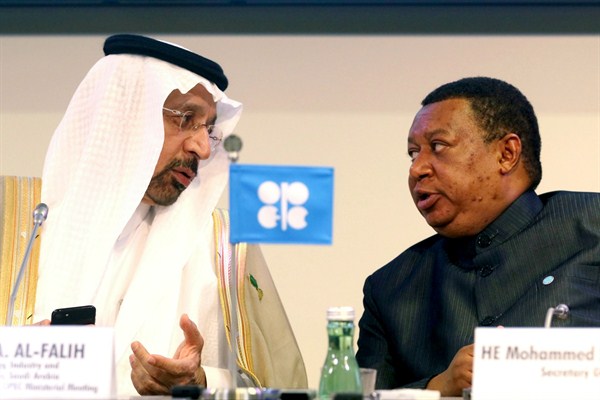Across Africa, governments have reacted swiftly to the rift between Saudi Arabia, backed by allied states, and Qatar, with a number of countries signaling their support for Riyadh. West Africa is no exception. Mauritania has announced it is cutting ties with Qatar, while Senegal and Niger have recalled their ambassadors in Doha. Such positions reflect Saudi Arabia’s strong standing in the region despite Qatar’s active diplomacy in recent years. In an email interview, Rahmane Idrissa, a political scientist currently based at the University of Gottingen in Germany and the author of “The Politics of Islam in the Sahel,” explains how Saudi Arabia has developed ties in the region, where its tactics have been most effective, and how Saudi influence manifests itself in West African society.
WPR: How aggressively has Saudi Arabia pursued ties in West Africa, using what methods, and has this outreach picked up in recent years?
Rahmane Idrissa: Saudi influence in West Africa is exerted through development aid, support for doctrinal currents of Islam that are close to Wahhabism, and direct contacts with heads of state, especially those in the Muslim-majority countries of the Sahel. The latter channel is the most important, although it is obviously difficult to assess its efficacy. It is a financial rather than an ideological form of influence.

